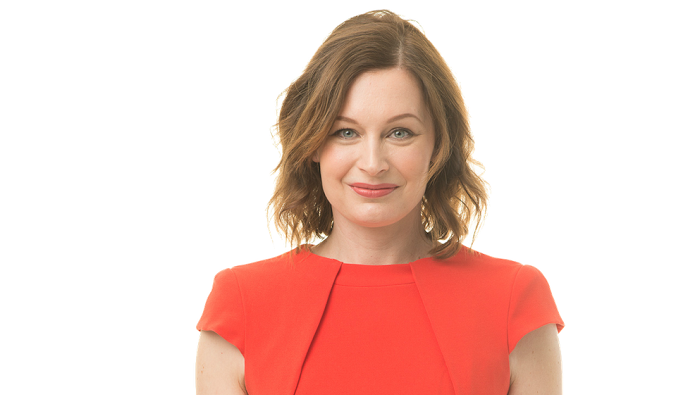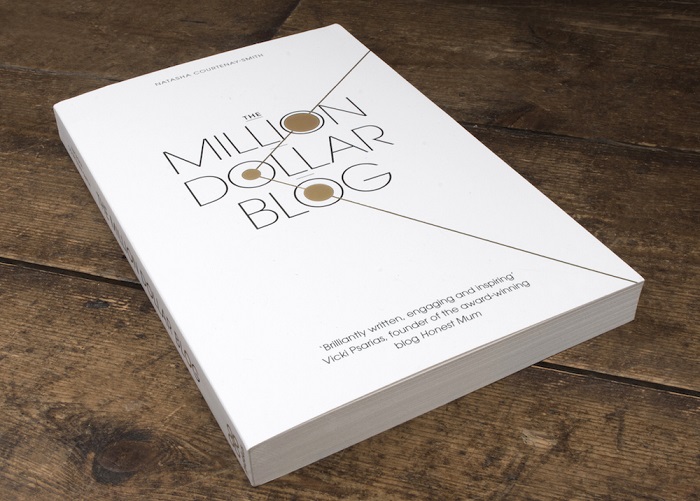Media Spotlight: Natasha Courtenay-Smith
Known as an entrepreneur, digital marketing strategist and publicist, Natasha Courtenay-Smith juggles many different hats. Her goal is simple – to use online and offline strategies to raise the profile of individuals and businesses. Having worked with TV presenters, blog stars, private health care businesses, festivals, and charities, Natasha is considered to be one of the leading experts in her field. And later this month, Natasha will be releasing her hotly anticipated new book, The Million Dollar Blog, which features interviews with some of the world’s leading bloggers, vloggers and content strategists offering practical advice on how to build a blog that will increase your profile, create new opportunities and earn a living. In this spotlight Natasha talks to us about why being a blogger now is like being a ‘pop star’, why mainstream media coverage is still important, and the role blogging will play in the future of PR.
Can you talk a little bit about your professional background at the Daily Mail and the process that led to you becoming an entrepreneur, author, digital marketing strategist and publicist?
I started my career in journalism, working first on various women’s magazines. In 2008, I then set up my own online press agency, which used the internet to generate all of our leads. We basically connected members of the public with stories with media outlets willing to buy those stories.
It was through running the business that I made the transition from journalism to online business and blogging, and running a content strategy (although in this case it was for business, to demonstrate our authority, attract more leads, rank top of search engines) that I learned all about the online world, digital marketing and blogging.
Why did you start blogging? What was the initial impetus? The impetus was to build my business and set myself apart from the competition and to get more leads. And it became clear pretty quickly that it worked! My press agency became one of the leaders in its field, extremely highly regarded and that was due to publishing, at least twice a week, articles that were helpful and interesting to our target audience. I was able to sell the business in 2014 to SWNS Media Group and I exited it soon after.
Why do you think blogging has become the ‘it’ career in today’s digitalised world? Being a blogger now is a bit like being a ‘pop star’. It attracts youngsters in huge droves because it looks fun, easy and seems to have huge rewards. I imagine young people feel now about how my generation did about, say, the Spice Girls. They want to be a blogger just like we wanted to be part of a girlband!
Bloggers are the online equivalent of Hollywood stars in the mainstream media, the ones who seem to lead the best lives, get to do the best things and who seem to have their world at their feet.
Why is blogging now an integral part of a business’s success? It’s about visibility and new leads.
Content creation, aka blogging, is in itself a key traffic strategy that any digital marketing consultant, myself included, would instantly put in place for any business or person wanting to raise their own profile and get more visitors to their website.
It’s an opportunity to improve Google ranking, to share on social media and get people back to the website, to start a conversation and get people back to the site, to stand up and be counted, to put yourself out there, to drive opportunity that you don’t even know about yet, to nurture and grow your audience. That’s why I see each piece of content as a traffic goldmine.
What advice would you give to PRs who want to use their content to build their brand and drive success? A PR using their content to build their business needs to be really clear about the reason they are creating content that is most likely to attract new clients for our PR agency. So they need to think, what do people who are wondering about PR and wanting to find a PR agency want to see? What would attract them? The answer is success stories (show them how much coverage you are getting for other clients so that they think ‘I want that coverage too’), behind the scenes (show them a glimpse inside your business to prove that you are real, you get on, you are decent people – to build the trust factor), and you are as expert as you say you are. So positioning yourself as a PR industry commentator too through thought leadership articles.
We speak a lot to bloggers about the challenges of promoting their blogs across the social channels. In an overcrowded digital storytelling landscape, how can you create a blog that stands out? Ah! Now that is the million dollar question. You know what, it’s super hard to stand out. Everyone talks about authenticity, about personal brands, about having a mission, about looking the part through great photography and design. All of that matters, but what really really matters is time. No one gets successful overnight, especially in the blogging world. What bloggers often lack is strategy and a business plan, and a realistic idea of timescales involved. You are looking at a two-year route to monetisation, and a five year (at least) path to big bucks.
How is blogging changing? Do you see blogging becoming more visual in the future?
I see the meaning of the word blogging growing to encompass all forms of content creation.
Currently, people talk about blogging and a platform such as Pintrest as being different things. In reality, it is all the same thing: creating content to build and drive an audience towards whatever your project, cause, or business is. I already see blogging as being all sorts of things over and above the written word alone. If you’re creating content in any form, then that is blogging.
Are traditional media channels still important when it comes to generating publicity for bloggers and PRs? Absolutely!! With my own clients I use both online and real-world techniques to increase their visibility, profile and traffic.
It should be a goal for any blogger or PR to get mainstream media coverage.
The impact of appearing in the media is threefold: firstly, people are more likely to Google you or follow you on social media; secondly, media exposure enhances your personal brand; and thirdly, being able to add a stamp such as ‘As seen on BBC 1’ or ‘As seen in the Sunday Times’ adds valuable credibility to your blog, thus further engaging your existing website traffic and any new arrivals to your site.
You work with many clients in helping them to secure publicity in mainstream media outlets. What are some of the key insights you’ve had from helping your clients to achieve this?
That it’s much easier to get coverage for a client when their online profile is sorted. The first thing a journalist does when they are thinking of featuring a person or a business is Google them. You don’t want to give them any reason to feel anything other than impressed and reassured. It’s like you want what they see to simply be a ‘tick’ in that particular box in their mind.
Let’s talk about your new book The Million Dollar Blog. Why did you decide to write it? It all came about as a result of a talk I did last year for Enterprise Nation called ‘Turn your blog into a business.’ The room was absolutely packed and I could see that there are so many people who feel passionately or want to start blogging or have started blogging. What they don’t understand is the business side of it. I then pitched the book to Little Brown, who commissioned it.
You’ve spoken to some of the world’s most famous and successful bloggers, vloggers and content strategists. What insights do they bring to the book? There are plenty of books about blogging that feature all the practical stuff, but that is so dull. I wanted mine to also be filled with stories from those that have been there and done that. I wanted to be able to give an overarching, big picture view. I think what is really interesting is that every single blogger featured, and there are around fifty of them, has a slightly different story and view on how they made it work, and why it works for them. You do begin to realise blogging isn’t like becoming a doctor or any more traditional career. The path to success is not linear.
How can PRs improve their relationship with bloggers?
I think PRs are increasingly realising the power of bloggers. Ultimately, it will be the same steps they took to improve their relationship with journalists. Invite them to lunches and parties, engage in real conversation, only pitch things that are relevant to the blogger.
What role do you see blogging having on the future of PR? When I first started doing digital strategy combined with PR for my clients, I was quite concerned about having ‘two hats’ on. But I quickly realised that all of this is the same: whether it’s blogging, social media or publicity, it’s all about PR. And it’s all about getting people better known for what they do. Increasingly, we’ll see PR firms offering that broad spectrum of services covering traditional media and new media. So yes, you’ll be doing PR for a client, but at the same time, you’ll be running their content strategy. And meanwhile, to grow your own business, you’ll be running your own content strategy. So all round, people will be doing a lot more blogging.
What’s next on the cards for you? Any exciting projects coming up in the near future? Well, I’m obviously going to keep offering excellent service to my own clients! In terms of my own digital strategy, I’m heading down the online course creation work. I will continue to work one-to-one with select clients and also share my knowledge with a wider group through digital courses which will be available on my own websites.








Leave a Comment